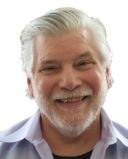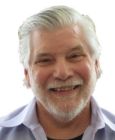Wisdom
Knowledge Is Not Wisdom
Engaging patients in a relationship makes information more meaningful.
Posted June 13, 2024 Reviewed by Jessica Schrader
Key points
- Scientific information has less power to change behavior than we want to think.
- Engaging people in an empathic relationship helps them explore the personal meaning of scientific facts.
- Effective insight is understanding plus feeling, which leads to personal wisdom.
For years I labored under the illusion that communicating knowledge about cannabis, or a wide variety of other drugs and alcohol, was the keystone for promoting recovery. I believed education was the vehicle for behavioral change. I was wrong, or at least my understanding was incomplete.
My first intimation that knowledge has limited power came while serving as a general practitioner in the Indian Health Service. I remember providing an overly detailed explanation about why to complete the 10 days of antibiotics to a mother with a squirming infant suffering from an earache sitting on her lap. Then I realized she was staring out the window, just hanging on until she could leave. I had the good sense to stop and acknowledge she needed to get her child home as soon as possible. As she gratefully left the examination room I reminded her, “Just be sure to take the medicine until it is gone. Hopefully your child will feel better before that, but don’t stop the medicine until the bottle is empty.” She didn’t need to know why.
Not having learned my lesson fully, I again relied on scientific facts too heavily later in my career after becoming fascinated by research that unraveled the mysteries of cannabis. I lectured on the science of cannabis for the California Society of Addiction Medicine and eventually wrote a book for Cambridge University Press titled From Bud to Brain. The book contains all the scientific information, fully referenced, that I believe mental health professionals should know if they treat cannabis users. I soon learned that professionals are often as unmoved by the data as patients are. Everyone is guided by their favorite opinions.
Then for years, I drizzled scientific information about cannabis over my patients, e.g., our brains have neuroreceptors that THC strongly activates, our brains contain natural neurotransmitters that THC and CBD resemble, and multiple lines of research demonstrate that cannabis is addictive. Few patients were as enchanted by the scientific story that unlocks understanding of how the brain reacts to cannabis as I am. Pot smokers continued to smoke, just as overweight people continue to eat despite understanding how calories work and overspenders continue to overspend despite seeing their debt mount. It is simply a human reality that knowing is not the same as wisdom.
So, what is wisdom? I have now come to understand that wisdom requires the kind of presence that facilitates affect. Without feeling, wisdom does not exist. People can know factual information entirely intellectually without being present to it. While knowledge is necessary for wisdom, it is not sufficient. Knowledge plus presence to feel how that knowledge relates to you creates wisdom. Let me illustrate.
I now approach patients with the initial goal of engagement—a feeling of trusting the relationship that is present between therapist and patient. It is only after the development of an empathic relationship that a state of mind exists that is open to seeing the personal meaning of new information. Once a patient achieves a vital presence in his or her relationship to the therapist, openness to being affected by information becomes possible.
Understanding is too often seen as insight, and yet all therapists have watched patients gain “insight” after “insight” without changing. This is because effective insight only occurs when understanding is accompanied by feeling. Understanding cannabis is addictive never has the power that feeling the impact of this information on your own life can have.
Wisdom involves how knowledge is used. Information is a tool. Does it get used to fortify someone’s intellectual defenses? Does it get ignored or denied immediately? Or does a person become effectively present to the personal meaning of that knowledge? If a therapist delivers scientific information as bullets to pierce a patient’s denial and change their behavior, both are likely to be disappointed. But if engagement precedes education, patients know they are cared about in this new relationship. Then, when information is transmitted, the therapist’s genuine caring for how it might relate to their patient creates an atmosphere of presence to the reality being discussed. If a patient ignores or denies this information, or if they over-intellectualize it, they sacrifice the sense of being as present as their therapist.
We draw people into wise use of information by the strength of the empathic relationship we have been able to establish. Holding the container of a deeply present relationship is often the main work done by therapists—holding that container with faith in its power to attract people’s often submerged longing to be heard, to be held, and to do what is needed to be healthy. It is within this effectively safe container that patients can learn to use knowledge wisely.
To find a therapist, please visit the Psychology Today Therapy Directory.


